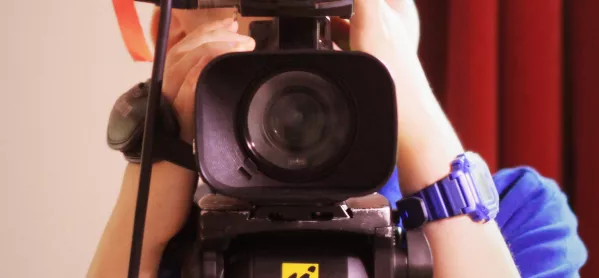Oral history (the collection and study of history through recorded first-hand accounts) is a great way of encouraging children to engage with the wider community, providing an opportunity to learn and develop skills such as research, interviewing, understanding archive film, editing footage, and writing and narrating a script.
Unfortunately, some teachers find oral history film-making daunting and avoid it. To counter this, we set up the Greatest Generation project. The project encourages children aged 7-11 to explore and commemorate their local history by filming interviews with members of the wartime generation, then combining these with specially selected archive clips to make their own short documentaries.
The project was inspired by a television series I produced, Britain’s Greatest Generation, to mark the 70th anniversary of VE Day. It tells the remarkable stories of some of the people who lived and fought during the Second World War. We invited schoolchildren to participate by making short local history life-story films about elderly people in their community.
Among the schools that participated were pupils at East Wichel Community Primary School in Wiltshire.
“It was excellent for developing the children’s speaking and listening skills, as they had to take responsibility for preparing questions and carrying out an interview,” says Katherine Reed, a Year 5 teacher at the school. “It was great to see them working as a team, and watching and using the historic archive clips helped bring the past to life.”
If you’re wondering how you could get involved, too, here are my ten top tips to make a great life story film with your pupils:
1) Find an interesting character with a good story to tell.
2) Prepare a short list of simple and clear questions to ask.
3) Think carefully about the best place to do the interview - most importantly, somewhere quiet and relaxing.
4) Think about the camera shot size. Keep it simple and intimate.
5) Get the very best sound through a microphone placed close to the interviewee.
6) Be a great interviewer by listening carefully and asking follow up questions, such as, “How did you feel about that?”
7) Edit the story to create a beginning, middle and end.
8) Illustrate your film with photographs and archive.
9) Explain your story using simple commentary.
10) Add music for atmosphere to heighten the impact of your film.
Schools interested in participating in Make Film: Greatest Generation can find out more here. The project is run in conjunction with the British Film Institute, BBC Learning, Into Film and the British Council.
Filming Our Greatest Generation is broadcast on BBC2 on 4am on Tuesday 30 June and 5am on Thursday 2 July. It will then be available online via the BBC Learning website.




